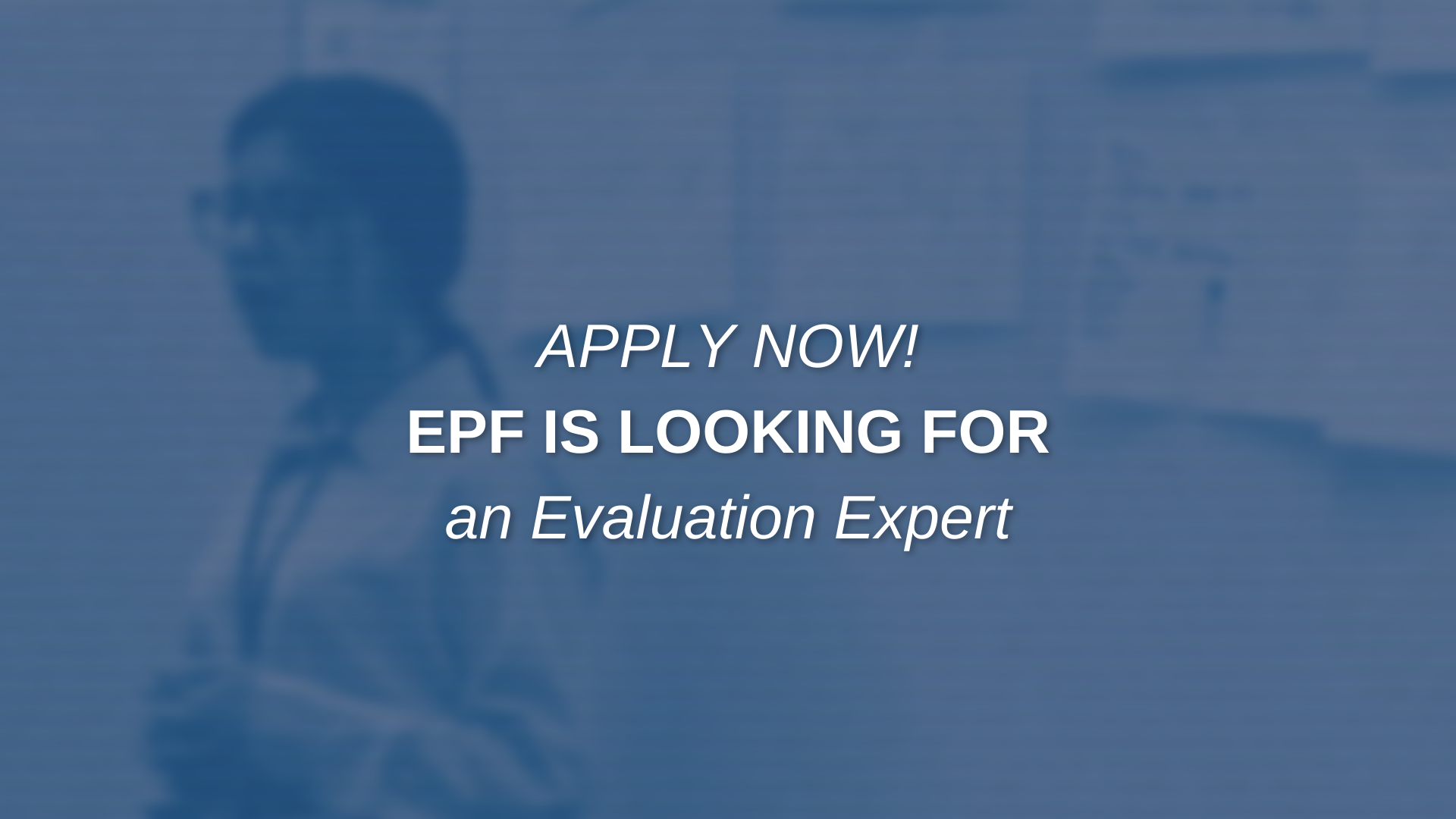

Terms of Reference:
Project Evaluation Expert
Background
EPF’s guiding vision is of a South Caucasus that is peaceful, conflict-free and cooperative with civically engaged citizens, socially responsible businesses, and sustainable, accountable and effective third sector organizations. EPF’s mission is to empower people to effect change for social justice and economic prosperity through hands-on programs, helping them to improve their communities and their own lives.
Through its “EU4Youth: Student Democracy Now” project, funded by the EU, EPF promotes the establishment of various types of student unions ensuring involvement of students of various social backgrounds to educate them on students’ rights protection.
Project Description
Eurasia Partnership Foundation in Armenia (EPF-Armenia) in a Consortium with Restart Scientific Educational Charitable Foundation (Restart Foundation), and Caucasus Research Resource Centre in Armenia (CRRC-Armenia) have been implementing the “EU4Youth: Student Democracy Now” project since February 1, 2021. The duration of the project is 36 months.
The project aims to protect the rights of young people and strengthen the capacities of students and student organizations and to empower them to engage in public affairs. The project addresses a broad scope of challenges faced by Armenian youth spanning from their lack of awareness on the mandates and functions of student councils to their meaningful participation in policy dialogue for the development of a new education system – a system which cultivates active citizenship, listens to the students' voice as active participants in educational institutions and provides space for student engagement in university governance.
The project aims to achieve its objectives through various activities involving students, young people, and student organizations. The activities can be grouped into three categories:
Education / Capacity Building
- Capacity enhancement activities designed for students, student organizations, and non-formal groups across the country.
- Activities include the ReForum student open space workshop, “Mardamej” Social-Innovation Camp, Critical-Thinking Schools, and various trainings on organizational development, student activism, rights protection, and more.
Sub-grants/Sub-contracts
- The Consortium provides funding to student CSOs and non-formal groups for proposals aligned with project objectives.
- A competitive sub-granting scheme will support 13 projects in Yerevan and regions.
Priority areas include rights protection, evidence-based policy development, fight against corruption, and students' self-organization. Financial assistance is also provided to student initiatives developed during the ReForum workshop, and “Mardamej” Social-Innovation Camp.
Advocacy
- EPF and Restart identify priority topics and involve project beneficiaries in policy and legal improvement processes.
- Recommendations on policy and legal improvements have been developed.
- The Consortium advocates for policy/legislative improvements, engaging decision-makers and universities.
Duties and Responsibilities
The project evaluation is being conducted to identify potential project implementation issues, assess progress towards the achievement of objectives, relevance and performance of the project as compared to the project document, identify and document lessons learned (including lessons that might improve design and implementation of the ongoing and other EPF projects as well), and to make recommendations regarding specific actions that might be taken for future projects. The project evaluation is expected to serve as a means of validating or filling the gaps in the initial assessment of relevance, effectiveness and efficiency obtained from monitoring. The project evaluation provides the opportunity to assess project’s success or failure and prompt necessary adjustments, and is to contribute to the EU external action’s Results Oriented Monitoring (ROM).
Main objectives of the project evaluation are:
- Assess the level of achievement of projects’ outputs and outcomes as stipulated in the Project Logical Framework;
- Assess the project in terms of its coordination and management efficiency;
- Assess the relevance of project’s activities (including those of sub-grantees/sub-contractors) within student democracy context;
- Analyze the effectiveness of the existing partnerships established/maintained with the Government, civil society, donors and other key stakeholders;
- Assess the extent to which the implementing team was able to identify risks and opportunities and accordingly respond to them throughout the project;
- Assess lessons learned, good practices and possible follow-ups for consideration of the implementer and the donor.
The evaluation should include a combination of different information collection methods, including: 1) desk research, analysing the project’s reports, publications, media coverage, on-line references, etc.; 2) in-depth interviews with the facilitators of the project, consortium members, sub-grant/sub-contract recipients, donors, beneficiaries and stakeholders of the project. Possibly, and based on the need, other research tools can be used, such as focus groups.
The following evaluation products are expected to be produced:
- The evaluation methodology, which should clearly articulate the evaluators’ understanding of what is being evaluated and why. It should also show how each evaluation question will be answered by way of: proposed methods, proposed sources of data and data collection procedures. The methodology should include a proposed schedule of tasks, activities and deliverables.
- Draft evaluation report that should meet quality standards and provide practical, feasible and time-bound recommendations supported by robust evidentiary basis and linked to the findings and conclusions around key questions addressed by the evaluation;
- Final evaluation report, including annexes as appropriate, by mid-January 2024.
Required Skills and Experience:
Education:
- Advanced university degree, with diploma in management or any other related field.
Technical and Functional Experience:
- At least 5 prior relevant experience in monitoring and evaluation of relevant program design and implementation,
- ability to work with minimal supervision and strong problem solving skills,
- good analytical and writing skills,
- ability to work as a member of a team with good inter-personal communication skills,
- strong planning and organization skills,
- strong communication skills (oral & written).
Languages:
- Fluency in written and spoken Armenian and English is required.
Application Procedure:
Please send your CV and Cover Letter to Nikolay Hovhannisyan, [email protected] by November 10, 2023.
***
This activity takes place within the framework of the ‘EU4Youth: Student Democracy Now’ project, funded by the European Union.
